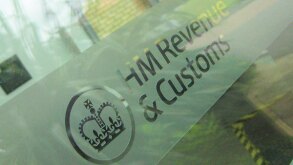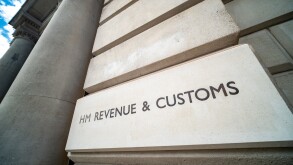General framework
The carbon neutrality commitments already made by several countries, both developed and developing, vary in terms of their definition of neutrality, the date to achieve zero net emissions, and the legal strength of the commitment to achieve the targets established.
According to the Portuguese government – in the so-called ‘Roadmap for Carbon Neutrality 2050’ – carbon neutrality is economically and technologically feasible and is based on reducing emissions between 85% and 90% by 2050 and offsetting remaining emissions by ensuring agricultural and forestry carbon sequestration capacity of around 13 million tonnes.
The trajectory anticipates emission reductions of between 45-55% by 2030 and between 65%-75% by 2040.
In addition to other measures already implemented or still under discussion, Portugal has recently implemented a set of ‘fees’ on consumers travelling by air and sea, amounting to €2 (approximately $2.30) per passenger.
This is not an entirely new solution in the context of international tax and environmental policies. As an example, similar solutions are already in place in eight European countries: Austria, France, Germany, Italy, Netherlands, Norway, Sweden and the UK.
In a broad sense, notwithstanding the fact that the law calls them ‘fees’, these are true ‘carbon taxes’, as the aim of the Portuguese legislator is to provide taxpayers (passengers) with compensation for the emission of pollutant gases and other negative environmental externalities caused by these means of transport.
More specifically, these carbon taxes are based on an adaptation of the general ‘polluter-pays principle’ to the so-called ‘user-pays principle’ (that calls upon the user of a natural resource to bear the cost of running down natural capital).
The carbon tax on air travel
According to the guidelines of the relevant legislation (State Budget Law for 2021 and Ordinance No. 38/2021), the creation of a carbon tax on air travel is the most balanced solution. It allows for the chance to put air transport passengers to contribute to projects that make the economy more environmentally sustainable through the action of the Environmental Fund (a public structure that, in Portugal, has the function of implementing sustainable policies and linked to energy transition). Simultaneously, by its reduced nominal value, the tax will have the residual economic consequences for the sector.
In the Preamble of Ordinance No. 38/2021, it is further added that "the ticket tax has the advantage of being easily applicable and perceptible by users".
This tax is levied on tickets for commercial passenger air transport departing from airports and aerodromes located in Portuguese territory.
This tax has a value of €2 for each passenger and its value should be passed on along the commercial chain, until the final customer (i.e. in cases where the ticket is not sold directly by the airline, the tax value should continue to be charged to the passenger by the company that sells the ticket).
The carbon tax on sea travel
In relation to the sea travel tax, Ordinance No. 38/2021 begins by justifying that "investment in the commercial ports network has gone beyond the development of port infrastructure, making Portugal different and building value through the affirmation of its ports as global logistics platforms for major world operators and their transformation into hubs accelerating business and technology, efficient, intelligent and sustainable, leading innovation in green shipping".
It is also stated that "in the cruise tourism segment in particular, as in other segments of economic activity in general, it is important that Portugal continues to focus on reducing greenhouse gas emissions".
In accordance with the Portuguese government's position, the creation of a carbon tax, processed by the port authority by simplified digital means via the single port invoice, is a balanced solution that allows cruise ship passengers, whether they are in transit, embark or disembark, to contribute to projects that make the economy more environmentally sustainable through the Environmental Fund.
The revenue from this tax will be used to finance the activities of the competent port authorities with regard to safety and navigability conditions and conducting regular air quality measurement campaigns, as well as to compensate the municipalities where the terminals receiving passenger ships are located for the costs they incur for cleaning actions.
The owners of passenger ships or their legal representatives are subject to the tax and the tax has a value of €2 per passenger in transit, disembarkation or embarkation. As with the tax on air travel, the value of the tax on sea travel must be passed on in the commercial chain, including to the purchaser of the ticket.
How far can carbon taxes go?
The creation of this specific mode of carbon tax is not an isolated move, but part of a structural objective of most states to tax carbon consumption in the context of energy transition (to low carbon sources such as green hydrogen or biomethane).
It will not come as a surprise if similar new taxes are created in sectors still largely dependent on non-renewable resources.
Therefore, in the coming years, multi-stakeholder scrutiny will be very relevant, especially in order to identify any problems or flaws in the laws that create this type of taxes.
Filipe de Vasconcelos Fernandes
Senior Consultant, Vieira de Almeida
E: fvf@vda.pt











